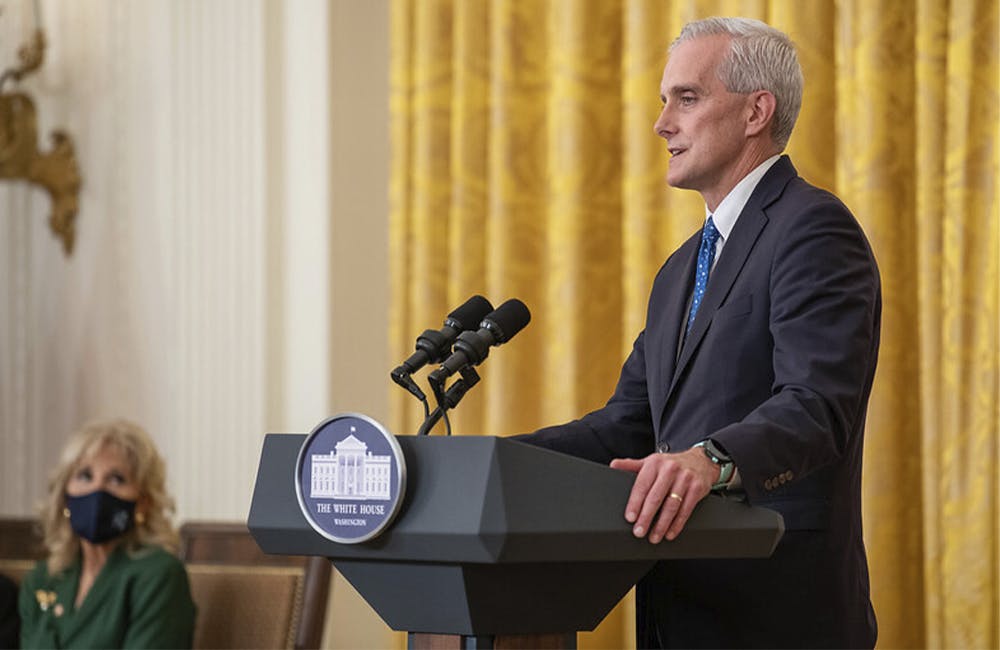ONC Academic Program Targets Health Inequities
Biden’s American Rescue Plan allocates $80 million to fund ONC’s innovative workforce development program that aims to promote health equity.

Throughout the national COVID-19 response, government agencies have worked to expand access to care and address long-standing health equity challenges across the public health system. As such, the Department of Health and Human Services sees historically black colleges and universities and other minority-serving institutions as an important part of addressing these challenges.
Using $80 million in funding from the American Rescue Plan, the agency’s Office of the National Coordinator for Health Information Technology (ONC) launched a new program that aims to strengthen the workforce to support underrepresented communities.
The pandemic highlighted “harsh health disparities that have been long recognized, but persist,” as research proves that racial and ethnic groups are particularly vulnerable to hospitalization and death due to COVID-19, said Centers for Disease Control and Prevention Principal Deputy Director Dr. Anne Schuchat. These gaps can be attributed to the state of technology infrastructure and lack of staff funding.
Now the new program, called the Public Health Informatics & Technology Workforce Development Program (PHIT Workforce Program), aims to improve data collection and reporting around infection, hospitalization, mortality rates and underlying health and social vulnerabilities like race, ethnicity, age and gender.
“We’re still recovering from a devastating pandemic and a national crisis, and this program is designed to address how we come back better,” said National Coordinator for Health IT Dr. Micky Tripathi during an informational session last week. “We want to reach out to key areas that have been underserved and underrepresented … The focus that we have in helping [minority serving institutions] and others will be a fundamentally important part of the program.”
The program is focused on three pillars: build back better, improve health equity and advance the public health infrastructure, Tripathi said at the event.
“There were many gaps that were highlighted in public health infrastructure as we were faced with a unique and devastating pandemic, and this program is designed to address some of those gaps,” Tripathi said. “We need to have that capacity and have that expertise, so we can come in and start to fill out that workforce.”
ONC is encouraging minority-serving institutions to apply for funding through a consortium that will develop the curriculum, recruit and train participants and help in career placement at public health agencies.
ONC will award up to $75 million to potentially 30 cooperative agreement recipients under this new program and aims to train more than 4,000 individuals.
“Applications must demonstrate an understanding of how the project components, expected outcomes and results will help reduce longstanding health disparities and inequities exposed by the COVID-19 pandemic,” said Maggie Wanis, branch chief of ONC’s Office of Policy.
The move comes amid an executive order calling on government to create and sustain a diverse public health workforce to better respond to future health and biological threats, said Arlene Ramsey, management analyst with ONC’s Office of Policy.
“Representation is important — particularly when we are deploying technology to tackle our most pressing health care challenges,” said HHS secretary Xavier Becerra in an agency announcement.
This is a carousel with manually rotating slides. Use Next and Previous buttons to navigate or jump to a slide with the slide dots
-

DOD Shifts Cyber Workforce Strategy to Prioritize Skills Over Pedigree
Defense officials and experts say that hiring and maintaining cyber talent is critical to national security.
4m read -

VBA Modernization Efforts Enable Claims Processing Record
VBA's claims processing modernization enabled the agency to process more than 11,000 claims in a day for the ninth time this fiscal year.
3m read -

HHS Accelerates AI, TEFCA in 2024
Micky Tripathi, tech policy and health IT leader, reflects on progress HHS has made with AI, data and TEFCA and outlines plans for 2025.
-

Library of Congress, NARA Modernize Records Management with Emerging Tech
Natalie Buda Smith and Jill Reilly dive into the challenges of preserving and providing access to digital-native materials.
19m listen








